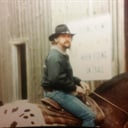Which scientist, listed below, has won two Nobel Prizes in a SINGLE category?
John Bardeen (born May 23, 1908, Madison, Wisconsin; died January 30, 1991, Boston, Massachusetts) was a prominent American physicist who shared the 1956 physics prize with William Shockley and Walter Brattain for inventing the transistor. Bardeen, Leon N. Cooper and John R. Schreiffer captured the 1972 physics award for discovering superconductivity and hence, the BCS theory.
Bardeen was a precocious youth who graduated high school at 15 years old. He went on to study at the University of Wisconsin and he obtained his Ph.D.at Princeton University. Thereafter, he worked, most notably at Bell Laboratories and finally, the University of Illinois. Many science historians consider that Bardeen's discoveries, which enabled modern computer development, have had a huge impact on society and the information age that we live in. He is described by his colleagues as humble and unassuming, despite the fact that he was unquestionably a genius.
The other scientists are:
- Marie Curie who won one Nobel Prize in physics and one in chemistry.
- Linus Pauling who was awarded the chemistry prize and the Nobel Peace Prize.
- Richard Feynman who won a single prize for physics.
The only other person to garner two Nobel prizes in a single field was Frederick Sanger who received this distinction in chemistry.
More Info:
en.m.wikipedia.org









